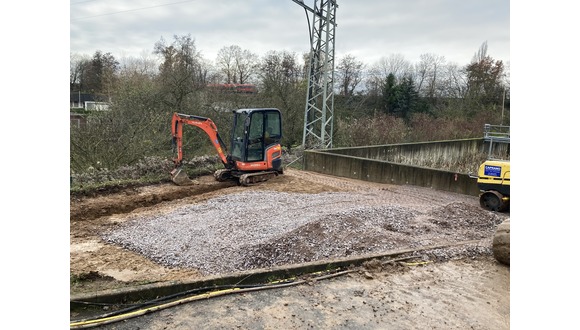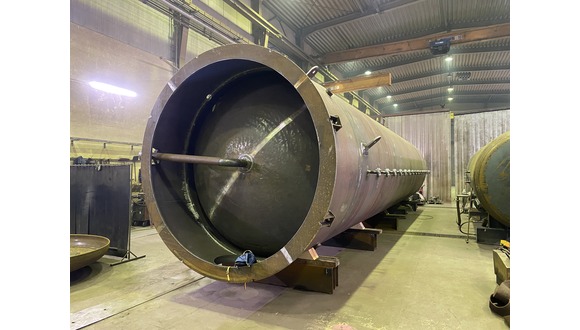Fri, 15 December, 2023
Demonstrations of GeoSmart project innovations have begun at the Insheim geothermal power plant in southern Palatinate, Germany.
The plant is operated by The Natuerlich Insheim GmbH (VNI), which was founded in 2021 as part of the Vulcan Energy Resources GmbH, whose main task is to promote carbon-free geothermal energy production in the Upper Rhine Graben.
The low-enthalpy plant uses an Organic Rankine Cycle (ORC) to supply up to 8,000 homes with electrical energy at around 8,000 operating hours per year, generated with a maximum output of 4.8 MW. The thermal water, meanwhile, has the potential to provide district heating.

This is representative of similar geothermal systems, making the Insheim geothermal power plant ideal as a demonstration site for GeoSmart, which aims to optimise and innovate improvements to the flexibility and efficiency of geothermal heat and power systems.
Insheim joins the Kızıldere-2 triple flash and binary plant at Zorlu, Turkey as a demonstration site, where GeoSmart technology is also already in place.
By using two types of plant, GeoSmart can address the different flexibility requirements of low-to-high enthalpy CHP provision.
The GeoSmart project is working to help optimise and demonstrate the flexibility offered by geothermal energy for the production of electrical and thermal power, replacing reliance on fossil fuels while accounting for the flexible supply of energy during seasonal changes in demand between summer and winter.

About GeoSmart
TWI has been working as part of the GeoSmart project consortium since it began in 2019, working with expert partners to collaboratively improve the strategic flexibility of geothermal installations.
Geothermal plants have the potential to be significant sources of energy over the coming 20-30 years, with optimised technical layouts to increase the efficiency of energy production.
Rolling these technologies out across Europe will increase the number of people who can benefit from geothermal energy as a clean source of both thermal heating and electrical energy production.
You can find out more about the work of the GeoSmart team on the project website, here.
The GeoSmart project has received funding from the European Union's Horizon 2020 research and innovation programme grant agreement 818576